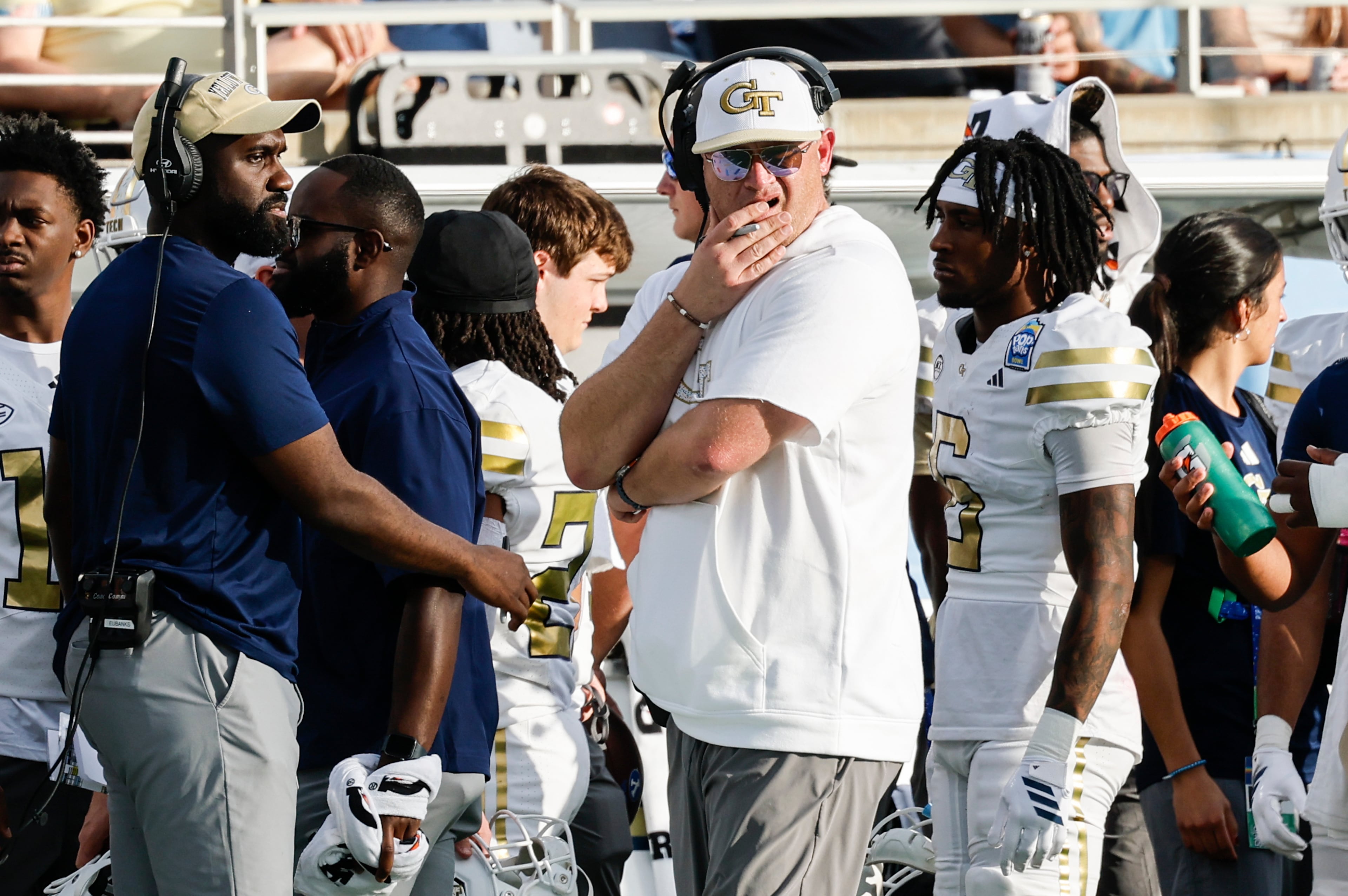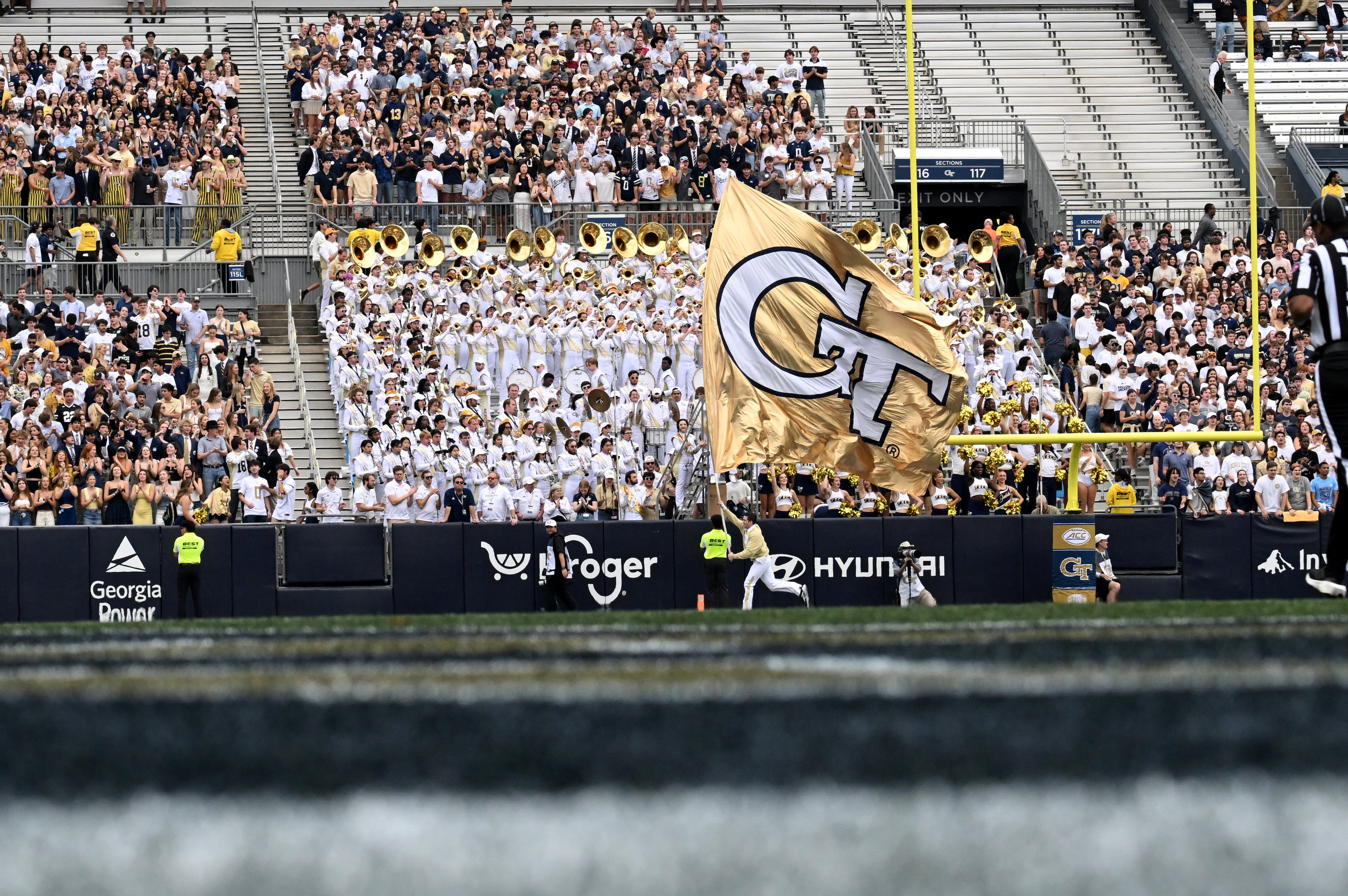At Georgia Tech precinct, election day is particularly festive

In the same arena where he normally marshals his defense and slams the scoring table after errant passes, Georgia Tech coach Josh Pastner directed voters to the polling site inside McCamish Pavilion. And on the same site, a couple long punts away from Alexander Rose Bowl Field, football coach Geoff Collins arrived early Tuesday morning to the arena, welcoming voters to the precinct.
“Just mingling, shaking hands, kissing babies, trying to make sure everything is flowing well and just positively encouraging,” said Collins, who, given his unwavering attention to COVID-19 protocols, presumably was not actually engaging in the second and third activities listed.
Pastner, Collins and women’s basketball coach Nell Fortner were three of several members of the Tech athletic department who gave parts of their day to directing, greeting and thanking voters at the McCamish polling site. The entourage included Tech athletes, some arriving even before the polls opened at 7 a.m.
“It was pretty cool,” Pastner said. “Our guys did a great job.”
There was a festive air at the corner of 10th and Fowler streets, and not only because voters were being plied with donuts, cookies and pizza. Citizens were exercising their right to vote. College students were taking part in their first elections. For the first time, Tech had offered the use of its basketball arena to the public as a polling location both in early voting and on election day, on this day staffed entirely by students, no less.
And, for the taller, broad-shouldered volunteers stationed along the perimeter of the arena, it was the first election day that Division I athletes were given the day off from practices, games and all required athletic activities to vote.
“For the athletes, it’s been neat seeing how much fun they’re having doing it,” Tech men’s basketball assistant coach Eric Reveno said.
The “All Vote, No Play” legislation, passed in September by the NCAA, had its origins at Tech, as the movement was begun and led by Reveno. Tuesday, Reveno was coordinating the athletes' shifts and the provision of water and snacks to voters.
“The cool thing is just to be a part of something that has changed the landscape of college athletics,” Collins said.
Collins spoke over the horn blasts of drivers on 10th Street responding to Tech cheerleaders waving signs that read “Honk if you voted.” He had also been joined by team members who had volunteered their time to support polling-site operations. Collins was proud to note that every team member eligible to vote had registered, praising the leadership of defensive ends coach Marco Coleman and assistant director of football operations Kevin Cone in leading that drive.
“Definitely over the summer, when we were quarantined and having all the Zoom calls, the conversations that were had over the summer were very impactful on so many levels,” Collins said. “But the piece about, how can we make an impact, how can we use our voice, how can we align our values with elected officials, those kind of points. It’s kind of nice to have a bunch of guys that are civic-minded, do want to be a part of their responsibility and have those discussions.”
One of those guys, freshman long snapper Henry Freer, was stationed outside another arena entrance with friend Michael Sorrow, a member of the baseball team. For both, having the time to volunteer at the polling site was definitely a change.
“I think the biggest thing is not having anything to do, sport-wise,” said Sorrow, the team’s bullpen catcher. “I’m not in a rush to go anywhere. It’s kind of weird.”
Activity at the actual polling site – the arena’s Callaway Club – appeared to be going smoothly around 1 p.m. Tuesday, the 12 or so volunteers staffing the site were all Tech students. On a day for deciding winners and losers, Tech had reason for celebration regardless of political leaning.
Said Reveno, “It’s just all good stuff.”



